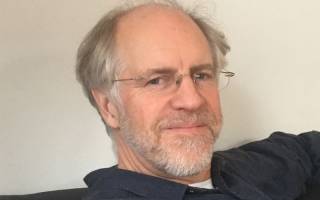Professor Adam Swift
Biography
I grew up in North London (Highbury, then Hampstead) and went to William Ellis School, which was a grammar school when I joined and became a comprehensive while I was there. In 1980, I went to Balliol College, University of Oxford, to study Philosophy, Politics and Economics. I spent 1983-84 at Harvard as a Kennedy Scholar, and then came back to Oxford, this time Nuffield College, for my MPhil in Sociology and my DPhil: For a Sociologically Informed Political Theory.
In 1988, I returned to Balliol as Tutorial Fellow in Politics and Sociology and stayed there for 25 years, during which I founded and directed the Centre for the Study of Social Justice in Oxford’s Department of Politics and International Relations.
In 2013, I moved to the Department of Politics and International Studies at the University of Warwick as Professor of Political Theory, and in 2018 I moved to the same role at UCL.
I am an Associate Editor of Philosophy and Public Affairs and on the Editorial Boards of Theory and Research in Education, Oxford Studies in Political Philosophy and Moral Philosophy and Politics.
Research
After early work on the communitarian critique of liberalism, my interest in combining political theory with empirical social science led to a project interrogating social mobility data, and people’s beliefs about social justice, from a normative perspective. This got me thinking about the mechanisms that generate the intergenerational transmission of advantage (and disadvantage) within families and to their children, ranging from sending them to elite private schools to reading them bedtime stories.
My wider interest in educational justice has developed in various directions. I was part of an interdisciplinary team that aimed to help educational policymakers make better decisions, while another collaborative project has combined philosophical and empirical considerations in proposing a framework for the regulation of religious schools in England.
Alongside these substantive topics, I have worked on methodological issues in political theory, including debates around ideal and non-ideal theory and the relation between philosophy, politics and empirical social science.
 Podcast: UCL Uncovering Politics
Podcast: UCL Uncovering Politics

Hear Professor Swift speak about his research on the following podcast episode:
S3 Ep6 | The Principles of Education Policy
Selected publications
- Books
- Brighouse, H., Ladd, H. F., Loeb, S. and Swift, A. (2018) Educational Goods: Values, Evidence and Decision-Making. Chicago: Chicago University Press.
- Brighouse, H. and Swift, A. (2014) Family Values: The Ethics of Parent-Child Relationships. Princeton, NJ: Princeton University Press.
- Swift, A. (2003) How Not To Be A Hypocrite: School Choice for the Morally Perplexed Parent. London: Routledge.
- Swift, A. (2001) Political Philosophy: A Beginners’ Guide for Students and Politicians. Cambridge: Polity (Fourth edition, 2019).
- Marshall, G., Swift, A. and Roberts, S. (1997) Against the Odds? Social Class and Social Justice in Industrial Societies. Oxford: Oxford University Press.
- Mulhall, S. and Swift, A. (1992) Liberals and Communitarians. Oxford: Blackwell (Second edition, 1996).
- Journal articles
- Swift, A. (2020) ‘Parents’ Rights, Children’s Religion: A Familial Relationship Goods Approach’, Journal of Practical Ethics, 8(2).
- Clayton, M., Mason, A., Swift, A. and Wareham, R. (2019) ‘The Political Morality of School Composition: The Case of Religious Selection’, British Journal of Political Science, 51(2), pp. 827-844.
- Boliver, V. and Swift, A. (2011) ‘Do Comprehensive Schools Reduce Social Mobility?’, British Journal of Sociology, 62(1), pp. 89–110.
- Brighouse, H. and Swift, A. (2009) ‘Legitimate Parental Partiality’, Philosophy and Public Affairs, 37(1), pp. 43–80.
- Brighouse, H. and Swift, A. (2008) ‘Putting Educational Equality in Its Place’, Education Finance and Policy, 3(4), pp. 444–466.
- Swift, A. (2008) ‘The Value of Philosophy in Nonideal Circumstances’, Social Theory and Practice, 34(3), pp. 363–388.
- Brighouse, H. and Swift, A. (2006) ‘Parents’ Rights and the Value of the Family’, Ethics, 117(1), pp. 80–108.
- Brighouse, H. and Swift, A. (2006) ‘Equality, Priority and Positional Goods’, Ethics, 116(3), pp. 471–497.
- Swift, A. (2000) ‘Would Perfect Mobility be Perfect?’, European Sociological Review, 20(1), pp. 1–11.
- Swift, A. (2000) ‘Class Analysis from a Normative Perspective’, British Journal of Sociology, 51(4), pp. 663–679.
- Swift, A. and Marshall, G. (1997) ‘Meritocratic Equality of Opportunity: Economic Efficiency, Social Justice, or Both?’, Policy Studies, 18(1), pp. 35–48.
- Book chapters
- Stemplowska, Z. and Swift, A. (2018) ‘Dethroning Democratic Legitimacy’, in D. Sobel, P. Vallentyne and S. Wall (eds.) Oxford Studies in Political Philosophy Volume 4. Oxford: Oxford Academic, pp. 3–27.
- Brighouse, H. and Swift, A. (2014) ‘The Value of Parenting’, in F. Baylis and C. McLeod (eds.) Family Making: Contemporary Ethical Challenges. New York: Open University Press, pp .11–28.
- Brighouse, H. and Swift, A. (2013) ‘Family Values and Schools Policy: Shaping Values and Conferring Advantage’, in D. Allen and R. Reich (eds.) Education, Justice, and Democracy. Chicago: Chicago University Press, pp. 199–220.
- Stemplowska, Z. and Swift, A. (2012) ‘Ideal and Nonideal Theory’, in D. Estlund (ed.) Oxford Handbook of Political Philosophy. New York: Open University Press, pp. 373–389.
- White, S. and Swift, A. (2008) ‘Political Theory, Social Science and Real Politics’, in D. Leopold and M. Stears (eds.) Political Theory: Methods and Approaches. Oxford: Oxford University Press, pp. 49–69.
- Swift, A. (2005) ‘Justice, Luck, and the Family: The Intergenerational Transmission of Economic Advantage from a Normative Perspective’, in S. Bowles, H. Gintis and M. Osborne-Groves (eds.) Unequal Chances: Family Background and Economic Success, Princeton, NJ: Princeton University Press, pp. 256–276.
View a full list of publications on Google Scholar
Teaching
I am Director of UCL’s MA in Legal and Political Theory, for which I teach both the core module ‘Peer Assisted Learning’ and the optional ‘Social Justice, Social Mobility, Education and the Family’.
I supervise PhD students across a wide range of topics in political theory, with a preference for those that come closest to my own research interests. I also contribute some lectures to our Introduction to Politics for PPE students.
 Close
Close


